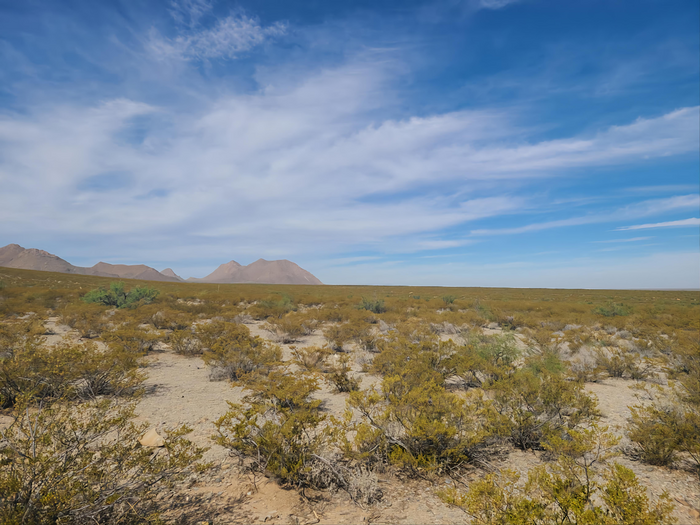Soil-borne pathogens are resilient to stressful conditions, and may be more likely than non-pathogenic microbes to survive the prolonged dry spells that are projected to persist regionally across many parts of the globe.

Credit: Photo by Adriana Romero-Olivares.
Soil-borne pathogens are resilient to stressful conditions, and may be more likely than non-pathogenic microbes to survive the prolonged dry spells that are projected to persist regionally across many parts of the globe.
Research on soil fungal communities in the southwestern United States suggests that the proliferation of spore-producing fungi in increasingly dry soils could represent a future threat to public health. Pathogenic fungi release spores that spread easily through airborne dispersal, and these species may be able to endure dust storms and droughts that non-pathogenic species are unable to tolerate.
Adriana Romero-Olivares, an assistant professor at New Mexico State University, will present her research on the complex relationships between global change, soil fungi and potential public health threats during a symposium at the Ecological Society of America’s 2022 Annual Meeting in Montreal, Quebec.
Romero-Olivares and a team from ETH Zürich, the U.S. Geological Survey and New Mexico State University extracted fungal DNA from vegetated and bare soils, comparing the effects of local conditions on microbial communities.
Their work is being used to inform policy makers on the public health threat potential that climate change has on soil fungal communities in the U.S. Southwest.
“It’s not only about the fungi that we know are pathogenic, but also about the fungi that have the potential to become pathogenic. We have no idea if global climate change may trigger pathogenicity and we really need to start looking into that to prevent future pandemics,” said Romero-Olivares.
Her presentation, on Thursday, August 18, at 2:30 PM EDT, is part of a session on Broadening perspectives to increase impact of applied ecology research in an era of rapid global socioenvironmental change. This session includes additional talks on:
- The interdependence of biological and cultural diversity – Erika Zavaleta, UC Santa Cruz
- Growing communities: socioecological constructions of community in urban gardens – Theresa Ong, Dartmouth College
- Promoting urban water management practices that enhance conservation and community health – Na’Taki Osborne Jelks, Spelman College
SYMP 19-4 – Microbial responses to climate change and potential impacts to public health
- Thursday, August 18, 2:30 PM EDT
- 520F, Palais des congrès de Montréal
- Adriana Romero-Olivares (New Mexico State University), Mark A. Anthony (ETH Zürich), Jovani Catalan-Dibene (New Mexico State University), Scott Ferrenberg (New Mexico State University), Andrea Lopez (New Mexico State University), Brooke B. Osborne (U.S. Geological Survey) and Sasha C. Reed (U.S. Geological Survey)
- Presentation abstract
- Contact: [email protected]
2022 Annual Meeting in Montreal, Quebec
August 14-19, 2022
Ecologists from around the world will converge on Montreal, Quebec, this August for the 107th Annual Meeting of the Ecological Society of America. Thousands of attendees are expected to gather for scientific presentations on breaking research and new ecological concepts at the Palais des congrès de Montréal on August 14th through 19th, 2022.
ESA invites press and institutional public information officers to attend for free. To apply, please contact ESA Public Information Manager Heidi Swanson at [email protected].
- Annual Meeting website
- Media information
- Press registration
- Program
###
The Ecological Society of America, founded in 1915, is the world’s largest community of professional ecologists and a trusted source of ecological knowledge, committed to advancing the understanding of life on Earth. The 9,000 member Society publishes five journals and a membership bulletin and broadly shares ecological information through policy, media outreach, and education initiatives. The Society’s Annual Meeting attracts 4,000 attendees and features the most recent advances in ecological science. Visit the ESA website at https://www.esa.org.
Follow ESA on social media:
Twitter – @esa_org
Instagram – @ecologicalsociety
Facebook – @esa.org




